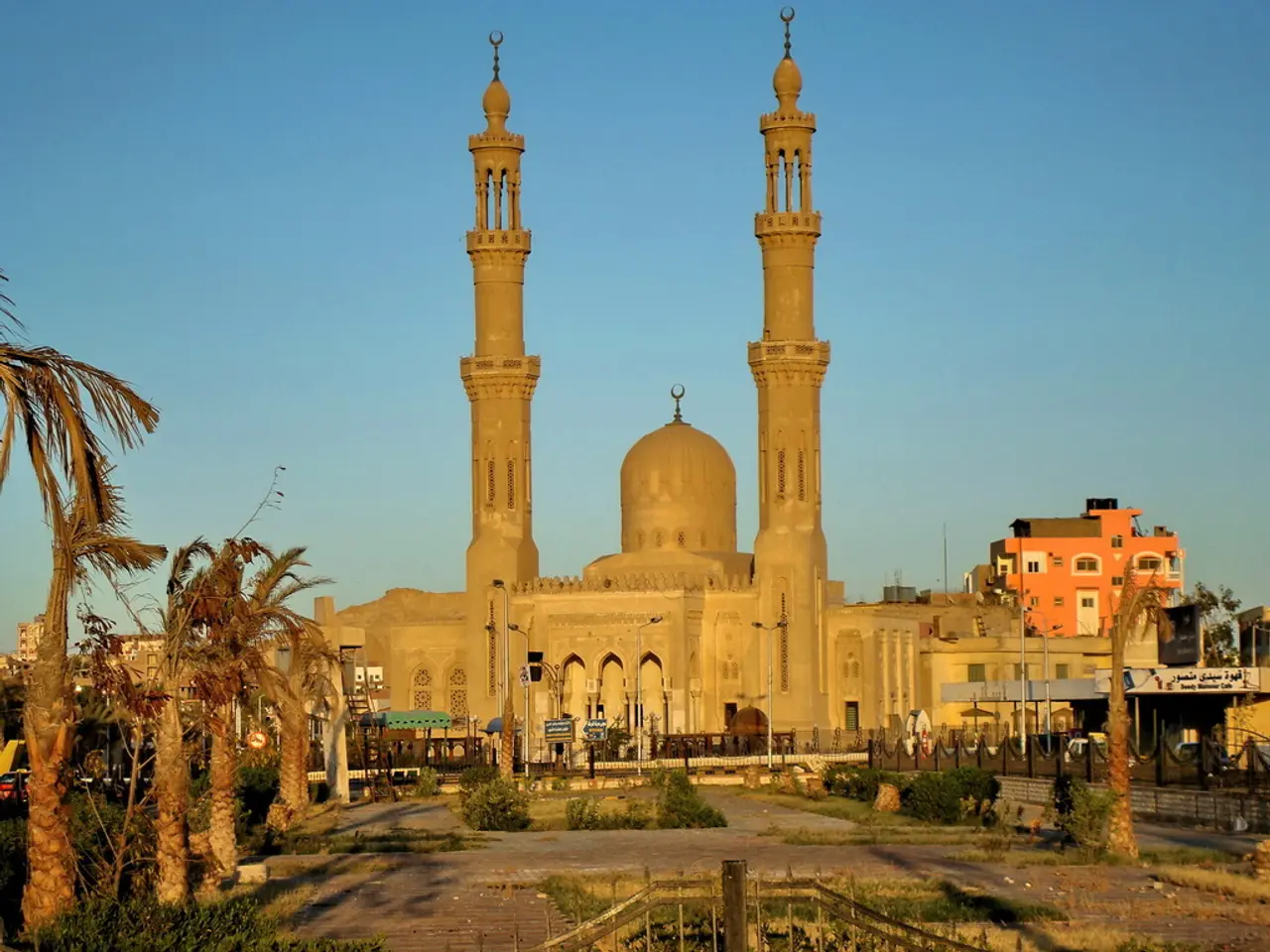Washington accords present new opportunities for the Kazakhstani economy - according to an Azerbaijani expert.
A groundbreaking peace agreement was signed between Azerbaijan and Armenia in Washington, DC in August 2025. This agreement, known as the Trump Route for International Peace and Prosperity (TRIPP), has significant economic and geopolitical implications for the South Caucasus and neighbouring regions.
Economic Impact
The TRIPP corridor, a 43-kilometer transit route connecting Azerbaijan proper to its Nakhchivan exclave via Armenian territory, opens new trade and transport opportunities for the region. This route facilitates the movement of goods, energy, and infrastructure such as rail, oil, gas, fiber optic lines, and potentially electricity transmission.
Armenia gains a key role in regional trade networks for the first time in decades, potentially ending its economic isolation and expanding its access to international markets via Turkey and Azerbaijan. Azerbaijan, in turn, solidifies its position as a transit hub between Europe and Asia, improving connectivity and economic diversification.
The agreement includes US exclusive special development rights over the corridor for 99 years, implying substantial infrastructure investment and economic engagement from the US and its consortia. These developments unlock possibilities for regional commerce, fostering economic growth and integration in the South Caucasus.
Geopolitical Impact
The agreement marks a pivot away from Russia’s longstanding dominance in the region. Armenia, traditionally reliant on Moscow for security and energy, starts reducing dependence on Russia and seeks closer ties with the West and Iran as a counterbalance.
The United States significantly expands its geopolitical leverage in the South Caucasus, positioning itself as a key stabilizing force and limiting Russian and Iranian influence by establishing a transport corridor that bypasses Iranian and Russian territory. The corridor enhances US strategic footprint from NATO-member Turkey through the South Caucasus into Central Asia, linking the MENA region with Eurasian economies and offering Washington new leverage in broader Middle East and Central Asian geopolitics.
The corridor may also improve Armenia–Turkey relations due to the facilitation of transit and economic cooperation, potentially ending decades of closed borders between those neighbours conditioned on peace with Azerbaijan. However, Iran has expressed opposition to the corridor citing security concerns, indicating this agreement could become a new regional flashpoint despite its peace objectives.
In sum, the Washington-brokered peace deal and TRIPP corridor represent a major shift in the economic connectivity and geopolitical balances of the South Caucasus. They promise significant regional economic development opportunities while reconfiguring power dynamics towards greater Western and Turkish influence and reduced Russian and Iranian sway. However, the agreement’s full success depends on constitutional ratifications, sustained political will, and managing emerging regional tensions, especially regarding Iran’s opposition.
Kazakhstan's Role
Kazakhstan, geographically positioned to connect Europe, the Middle East, the Near East, Southwest Asia, and Russia, stands to benefit greatly from the TRIPP corridor. The agreement opens transport routes for countries including Kazakhstan, Central Asia, Russia, Iran, and others, bringing enormous benefits in the economic and humanitarian sectors.
The peace agreement between Azerbaijan and Armenia is a recognition by both sides of each other's territorial integrity and the beginning of new relations. As a leading country in the Turkic world due to its geographical position, economic capabilities, and political opportunities, Kazakhstan is well-positioned to play a significant role in these new relations.
The peace agreement also paves the way for Kazakhstan to expand its influence in the Turkic world and increase its presence on international markets. Together with Azerbaijan, Kazakhstan can realise its national interests within Turkic and other international organisations. Kazakhstan also has the right to uninterrupted access to international markets, particularly Western markets, and the South Caucasus is one of the routes for this access.
With the signing of this peace agreement, the South Caucasus enters a new era of prosperity and peace following the conclusion of military actions in 2020 and anti-terrorist operations in Nagorno-Karabakh in 2023. Kazakhstan has already begun humanitarian projects on liberated territories in Azerbaijan.
[1] Trump Route for International Peace and Prosperity (TRIPP) Corridor
[2] The Trump Route for International Peace and Prosperity: A New Era for the South Caucasus
[3] The Trump Route for International Peace and Prosperity: A Game Changer for the South Caucasus
[4] The Trump Route for International Peace and Prosperity: Turkey's Opportunities and Challenges
[5] The Trump Route for International Peace and Prosperity: A New Era for the South Caucasus
- The TRIPP corridor's economic implications extend to the media and politics, as the increased trade opportunities may lead to increased coverage and debate centering on the corridor's development and impact on the South Caucasus.
- In the realm of general news, the media may scrutinize the geopolitical impact of the TRIPP corridor, particularly the potential power shifts in the South Caucasus as a result of reduced Russian and Iranian influence and increased Western and Turkish presence.







